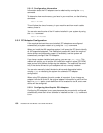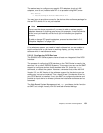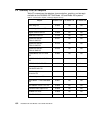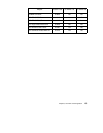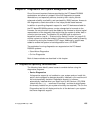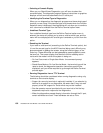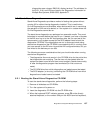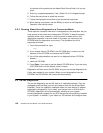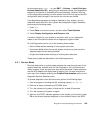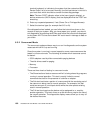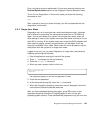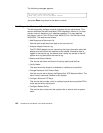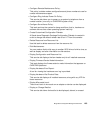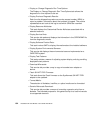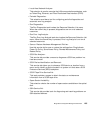
158 RS/6000 43P 7043 Models 150 and 260 Handbook
to indicate to the system that the default Boot Device Order List is to be
used.
5. Enter any requested password, if set. (Power-On or Privileged-Access).
6. Follow the instructions to select the console.
7. Follow the displayed instructions to test the desired resources.
8. When testing is complete, use the F3 key to return to the Diagnostic
Operation Instructions screen.
6.2.2 Running Stand-Alone Diagnostics in Concurrent Mode
There might be a situation where on-line diagnostics is not available, but you
have access to the stand-alone diagnostics CD-ROM. To keep the system
available to the users, however, you do not want to reboot and run the
diagnostics programs in service mode. In this case, you can mount the
CD-ROM and run diagnostics concurrently. The procedure for this is
explained as follows:
1. From the command line, type:
diag
2. If you already have a CD-ROM in the CD-ROM drive, unmount any file
systems on the CD-ROM and remove the CD-ROM.
3. You will be asked whether you want to run diagnostics from CD-ROM.
Answer
y.
4. Insert the CD-ROM.
5. Press Enter if you want to use the default CD-ROM drive. If you are using
a CD-ROM that is not the default, enter its name.
Diagnostics will then mount the CD-ROM, and you can access diagnostics as
if they were loaded on your system. When you exit diagnostics from the
CD-ROM, the CD-ROM will be unmounted automatically.
6.3 On-line Diagnostics
The on-line diagnostics are an AIX Version 4 installable package. They are
packaged under bos.diag (you will also need to have the bos.rte.diag fileset
installed). There is a separate, installable option for each device or adapter
supported by diagnostics. If you install your system from an AIX Version 4
CD-ROM, diagnostics will be automatically installed on your system,
including diagnostics support for any PCI devices that are physically installed
in your system. In addition, if you install any PCI devices and configure them



